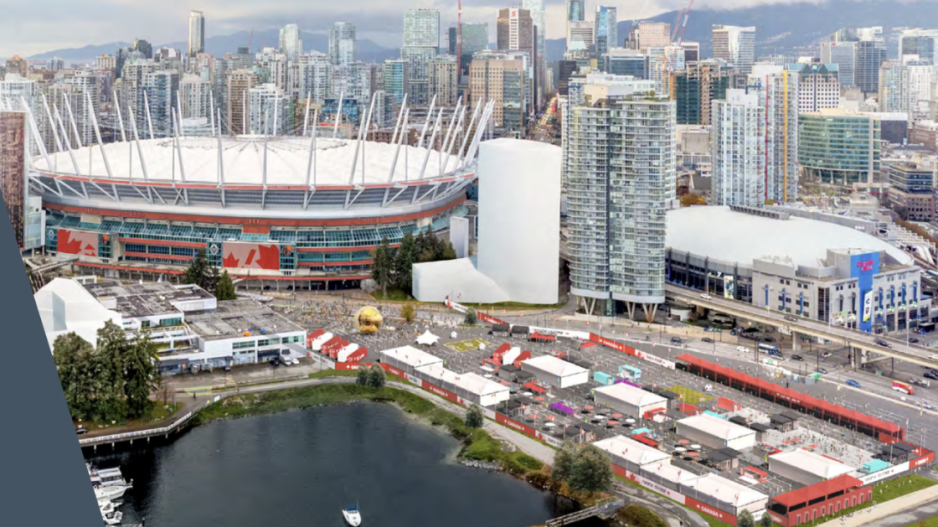Vancouver city hall is looking for a senior financial planner and analyst to help manage the $230-million budget for the FIFA 26 World Cup.
Applications close Feb. 2 for the full-time job, which runs from March until the end of 2025 and pays between $116,696 and $153,560 annually.
Candidates must have a professional accounting designation or hold a master’s degree in business administration, eight years’ experience in budgeting, financial analysis, forecasting, reporting and accounting, and five years managing financial staff, “preferably in a large multi-unionized environment,” said the job posting.
The senior manager will report to the director of financial planning and analysis and lead budget.
This involves quarterly and monthly reporting for operating and capital spending "for all service groups supporting the FIFA World Cup 2026, including responsibility for financial oversight of agencies outside of the city that are delivering services within the scope of the city’s host city obligations.”
The position is eligible for the city’s flexible work program, which allows remote work for as many as four days a week.
Almost a year ago, the BC NDP government gave Vancouver city hall temporary authority to collect a 2.5 per cent tax on accommodations until 2030.
Jan. 15 was the deadline for the ÎÚÑ»´«Ã½ Pavilion Corporation (PavCo) call for a construction manager to oversee various World Cup-related works at ÎÚÑ»´«Ã½ Place Stadium.
The budget was not revealed, but the request for proposals said PavCo is planning for expansion of luxury suites, upgrades to the main press box, washrooms, hospitality space, food service and elevators, and the building of a souvenir store, premium entrance and connection to the Parq hotel/casino complex.
Both the City of Vancouver and the provincial government have refused to disclose any of their hosting proposals and contracts with FIFA.
“Some things can be disclosed, some can’t,” Vancouver Mayor Ken Sim said last August. “But let's be very, very clear. The City of Vancouver would not enter into something that we believe would be detrimental to the taxpayers, the residents, not only of Vancouver, but the province as well.”
An unidentified third party asked the Office of the Information and Privacy Commissioner last year to review documents withheld from a reporter by city hall.
“This file is currently awaiting an inquiry by the Information and Privacy Commissioner or their delegate. The commissioner or the delegate will decide the issues in dispute and issue an order,” said a Jan. 4 letter from Tim Mots, an investigator in the Office of the Information and Privacy Commissioner (OIPC).
OIPC rulings have repeatedly upheld the right of public access to negotiated contracts between public bodies and private entities. In 2021, an adjudicator ordered Canadian Soccer Association Inc. (CSA), on behalf of FIFA, to release the ÎÚÑ»´«Ã½ Place contract for the ÎÚÑ»´«Ã½ 2015 Women’s World Cup.
CSA dropped its court challenge in early 2022. The document showed the maximum payment for exclusive use of the stadium for almost six weeks was just under the $2-million subsidy provided by the BC Liberal government.
Vancouver, Toronto and Seattle are among the 16 cities chosen to host matches in the 48-nation, 104-match 2026 tournament. Vancouver and Toronto are expecting at least five matches apiece.
Seattle city council published its host city contract last August. The Seattle host city authority is responsible for supporting the government to provide safety, security, fire protection and medical services at no cost to FIFA, plus free public transportation to ticketholders on match days and to anyone accredited by FIFA throughout the competition period.
Unless otherwise explicitly stated, the host city authority shall be responsible to bear all the costs of hosting and waive all claims of liability against FIFA, its officials and related entities.
In October, the San Francisco Chronicle reported on a proposed “Information Sharing and Event Cooperation Agreement” between the San Francisco 49ers, City of Santa Clara and FIFA for use of Levi’s Stadium.
“Only the mayor, city council and a handful of designated staffers would be allowed to see certain World Cup documents — and nobody could keep a copy,” the story said. “Taxpayers would not be able to see these financial documents at all, according to the agreement.”
On Jan. 5, The Trillium news outlet, which covers the Ontario provincial legislature, reported that FIFA was fighting to block the release of its contracts with Toronto city hall.
It said that the city’s freedom of information office agreed in October to release the contracts in their entirety, but FIFA is exercising its right of appeal.
"Hosting agreements contain operational and commercially sensitive information and data which are kept confidential for legal, safety and security reasons," FIFA said in a written statement to The Trillium.
Last April, Toronto estimated it would cost $300 million to host matches at BMO Field, but it had not agreed to a funding formula with senior governments.



